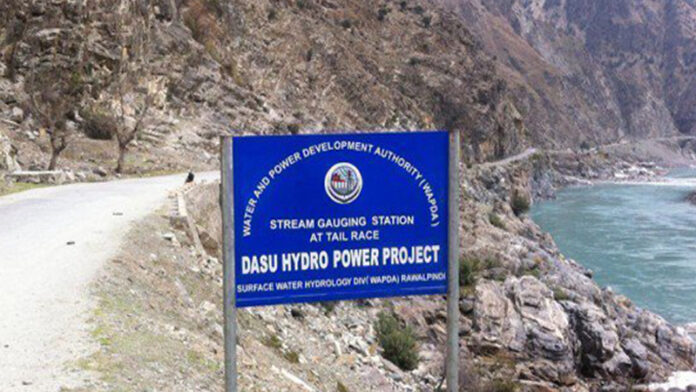The World Bank will dispatch its Implementation Support and Progress Review Mission from February 10 to March 5, 2025, to monitor the Dasu Hydropower Project-stage 1 and assess its progress.
The 242-meter (794 ft) tall dam, supporting a 4,320 MW hydropower station, is being built in two stages of 2,160 MW each. The plant’s first power generation is slated for July 2027. However, progress has slowed considerably due to transportation restrictions for international workers and a shortage of armored vehicles for their movement within project areas.
Last month, the Ministry of Economic Affairs raised concerns about delays in implementing the project. Formal signing of an additional $1 billion financing agreement remains pending due to the Water and Power Development Authority’s (Wapda) failure to secure approval for the revised PC-1.
A World Bank mission in September 2024 expressed dismay over the slow pace of the multibillion-dollar project. The upcoming mission will hold meetings with the Ministry of Water Resources, the Ministry of Energy (Power Division), Wapda, National Transmission and Despatch Company (NTDC), local officials, and the Project Implementation Units (PIU) for DHP-1.
Led by Task Team Leader Gunjan Gautam, the mission will include World Bank specialists in energy, social development, procurement, and environmental management, alongside financial analysts participating remotely.
Meanwhile, a separate World Bank mission visited Pakistan from January 15-17, 2025, to discuss potential program support for power transmission infrastructure. The Transmission System Expansion Programme (TSEP) identified four high-priority transmission projects, for which the Power Division sought assistance from development partners, including the World Bank, ADB, ISDB, and USAID.
The mission addressed several objectives, including reviewing USAID’s techno-economic studies on priority projects, discussing the Matiari-Moroline feasibility study, and advancing preparation for the Reactive Compensation Devices (STATCOMS) project to stabilize north-south power flows.
The mission team, led by Waleed Saleh, included energy specialists, infrastructure program leaders, and social development experts. Collaborative efforts with NTDC aim to enhance the country’s power transmission capabilities and improved system reliability.




